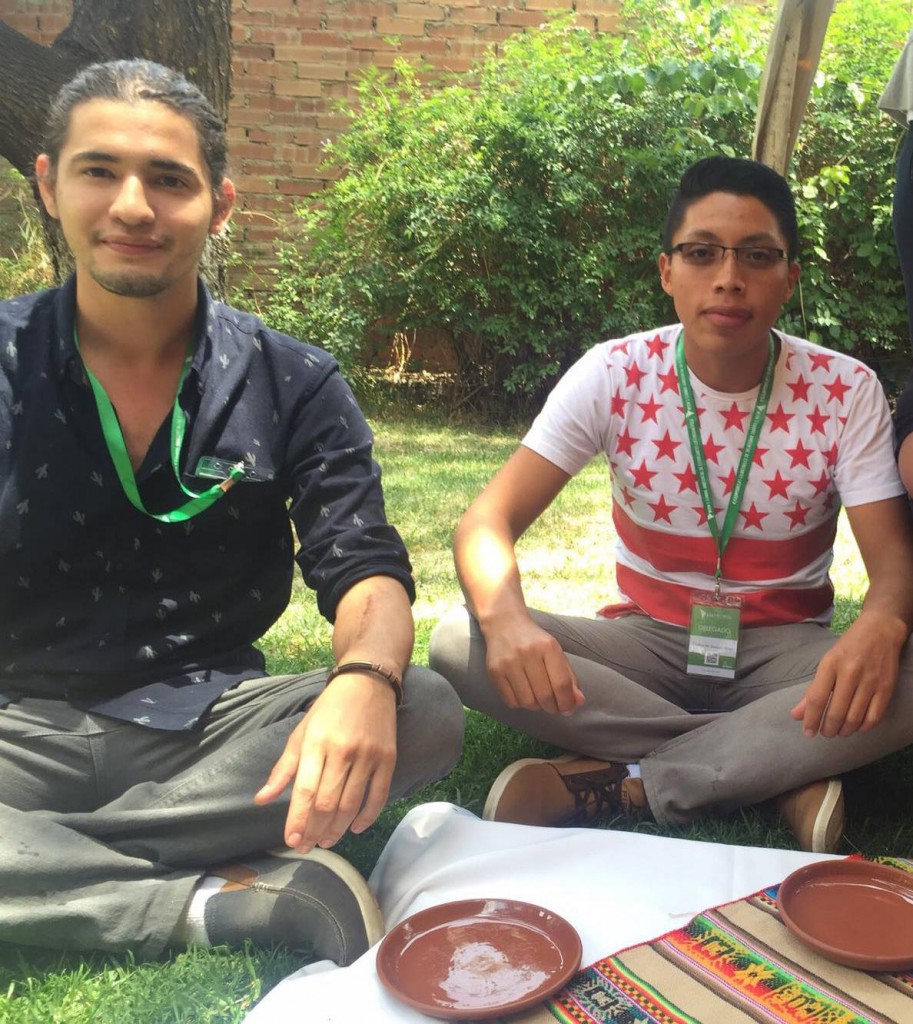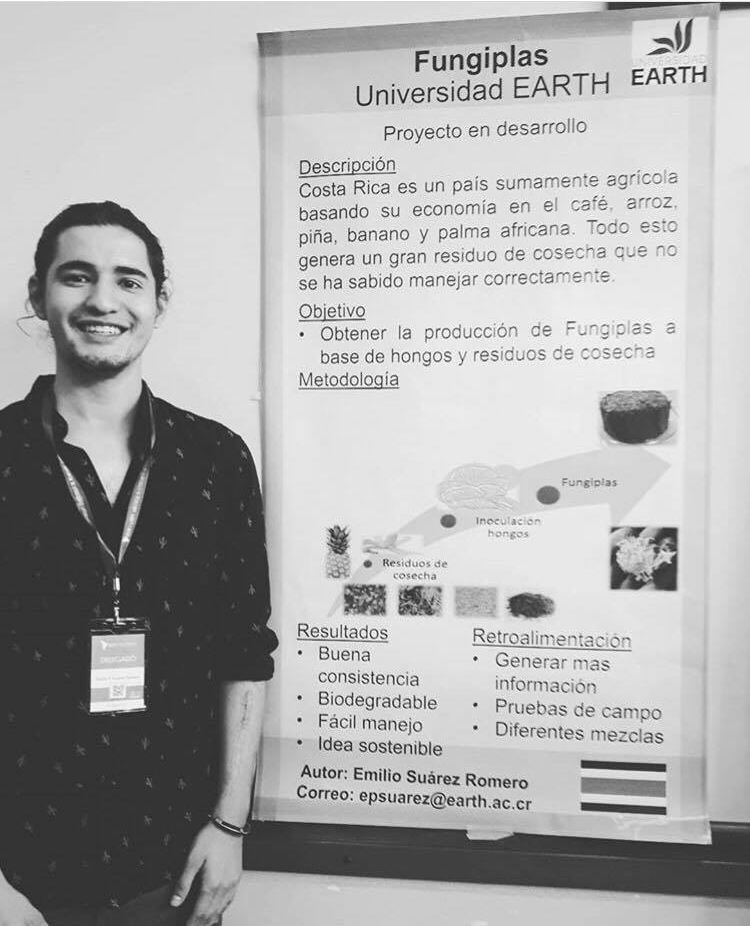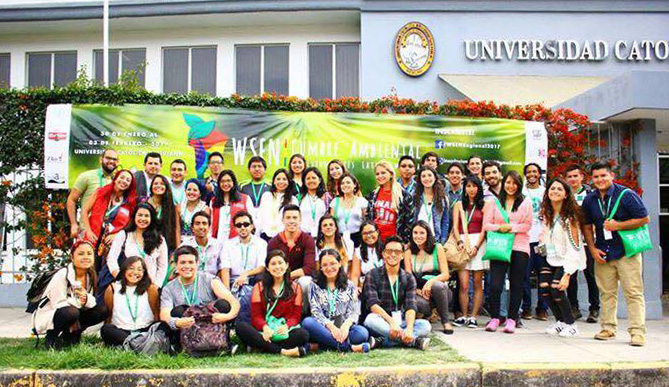EARTH students participate in Latin American student environmental summit
The World Student Environmental Network’s first Latin American summit – a regional version of the global student conference – took place in Cochabamba, Bolivia.
EARTH University was represented by two students: Cristian Ixcayau (’18, Guatemala) and Emilio Suarez (’17, Costa Rica). The following is a conversation we had with Emilio about his experience.
How did you find out about the WSEN Latin American summit?
In mid-September, EARTH distributed an email asking for students with interest and experience in sustainable development who would like to participate in the summit.
We had to write and submit an essay about our experience with the subject. I chose to discuss my entrepreneurial project of raising replacement heifers in a silvopastoral system that attempts to lower costs and allow for environmentally friendly production. The silvopastoral system involves the management of a few different pastures within a limited area among which cows are rotated daily. The grazing lands include wooded areas with trees that serve as another source of food for the animals and capture carbon.
I also spoke about my graduation project, Fungiplas, which inoculates harvest waste with two types of fungi to produce a biodegradable substitute for Styrofoam. That, in turn, can be used to make tree pots for nurseries.
Lastly, the essay included information about my third-year EARTH internship.
Why were you interested in participating in this event?
I’ve always been passionate about the environment and I liked the fact that the summit focused on Latin America. I also appreciated the fact that we had to bring ideas. I wanted to see what the other participants would bring. There were ideas about everything, from production chains and hydrogen work to the promotion of e-waste recycling and more.
It was quite beautiful because I was able to live with many people, attend workshops and discuss problems – such as water, waste management and global warming, among others – that eventually will affect everyone in the region.
How was the schedule organized?
It lasted one week. I left on Sunday and returned the following Saturday. The agenda was from 8 a.m. to 9 p.m. every day. In the mornings, we attended various talks and speaker sessions until 1 p.m. We chatted, we lunched, and after that we chose the workshops that interested us. Later in the afternoon, we had social activities in a special gathering place.
Why is it important to create these knowledge networks while in college?
For me, it’s very important to create these network databases, in addition to sharing knowledge. I didn’t just go to the summit, rather I shared and commented on others’ ideas, and I made good friends. We need these tiny projects to face our impending future, a future in which young people will have to take action. Environmental problems, such as global warming, are real and they’re upon us. We can see them. We can feel them.
What does Latin America need to continue progressing in environmental innovation?
Summits like this are the first step. Also, we lack economic support to implement projects, to ensure they are more than just ideas on paper. Many ideas have worked on a small scale but, for lack of investment, have been forgotten.
Any final thoughts?
Without a doubt, I would do it again. It was an environment of human growth, listening and being listened to. It was a place where ideas that interested people meant they have potential. The biggest takeaway for me was there is talent in Latin America and that should be taken advantage of. We fixate on the actions of other countries without recognizing that we have the solutions here. To achieve a better world, we must make ourselves heard.
The World Student Environmental Network (WSEN) is a global organization that connects diverse students who utilize their universities as incubators of change toward a more sustainable society.
You can learn more about the summit on its Facebook page.







